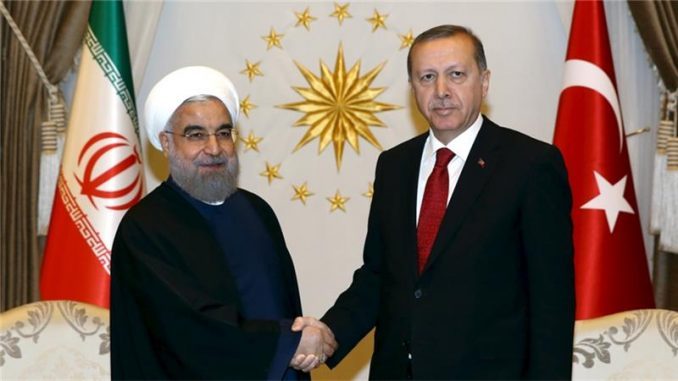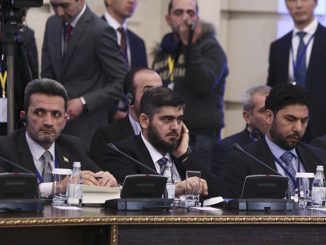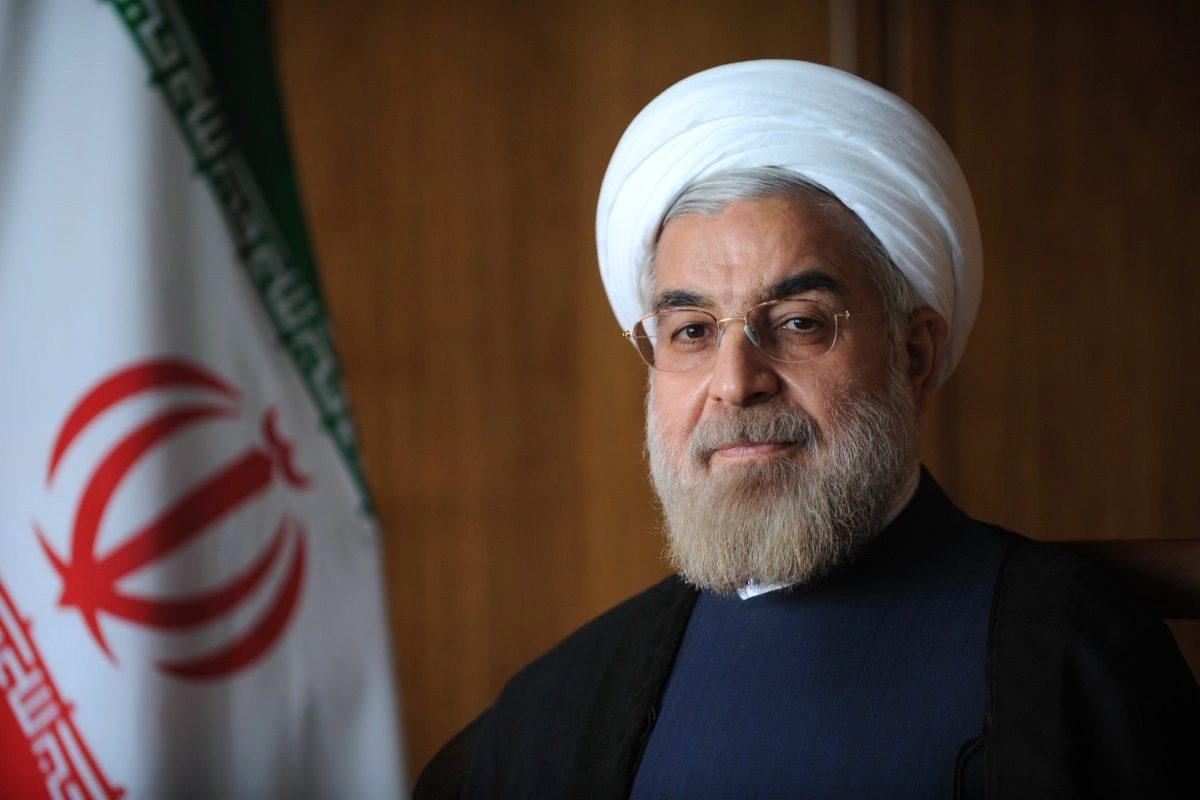
As both Turkey and Iran are engaging in big political and military conflicts in the region, their interests seem to start going against one another paving the way to an expected collision between them, especially after the trust between the both powers reached its lowest levels.
This competition is the last chapter of an old game for power, according to Ali Vaez in NY Times.
How the two countries choose to deploy their power and whether they can overcome their differences are vitally important to determining the future of the Middle East.
Turkey and Iran are now on a collision course, mostly because of their involvement as the region’s major Sunni and Shiite powers in the deepening sectarian conflicts in Iraq and Syria. Their inability to accommodate each other has the potential to undermine or even undo the strong ties they have developed over the past two decades, as their economies became increasingly intertwined.
Turkish military operations
Turkey’s military involvement in Syria and Iraq is partly a response to the perception that Iran is increasingly encroaching on its historic sphere of influence, especially in and around the Aleppo and Mosul battlefields close to its southern border.
In addition, the Turkish government is fighting ISIS in both Syrian and Iraq and the US-backed Kurdish militants in Syria to clear its borders of any unwanted danger.
Syrian rebels supported by the Turkish Army are currently advancing southward, having pushed the Islamic State out of the towns of Jarablous, al-Rai and Dabiq near the Turkish border between August and October. They are now at the gates of the town of al-Bab, and the stage is set for confrontation.
The strategically important city is held by the Islamic State but coveted by others: the United States-backed P.Y.D. closing in from the east, and the Syrian Army and Iranian-allied forces from the south. Already, some officials have alleged that an Iranian-made drone was involved in killing four Turkish soldiers in an air attack near al-Bab on Nov. 24.
Friction between the two countries and their proxies is rising alarmingly at a time that mutual trust has reached a nadir.
Tehran interprets Turkey’s Syria policy as primarily a product of a neo-Ottoman ambition to regain clout and empower pro-Turkey Sunnis in territories ruled by its progenitor. “What changed in Syria” after the civil war began “was neither the government’s nature nor Iran’s ties with it, but Turkish ambitions,” an Iranian national security official told me. Moreover, Iran blames Turkey for not stemming the flow of Syria-bound jihadists through Turkish territory and for giving them logistical and financial support.
Iran wars in the region
Iran was able to force control on Iraq after Saddam’s defeat by empowering the Shiite armed militias and planting Iraqi politic figures that rule the country according to Iran’s plans.
Iran also supported Assad regime by money and fighters to defend his role, in return tofreeing Iran’s hand in Syria to achieve its long-awaited dream. Iran started a demographic change in the Sunni-populated areas in Syria and sought to change the face of the Syrian cities by forcing the Shiite festivals in the heart of Damascus, adding Syria to the list of its controlled areas and making it gradually the 32nd Iranian province.
Iran has framed its war effort in sectarian terms, insisting the men it has sent to fight are in Syria to defend the shrine from “Sunni extremists”. In addresses inside Syria, Akram al-Ka’abi, the leader of the Nujaba Front, has exhorted his followers to seek revenge for battlefield losses to Sunni figures in the founding years of Islam.
The Iranian regime said that Aleppo’s fall is an important victory for their forces, and would not have been achieved without them.
“Aleppo was liberated thanks to a coalition between Iran, Syria, Russia and Lebanon’s Hezbollah,” said Yahya Rahim-Safavi, Ali Khamenei’s chief military said.
As a result, officials in Ankara contend that Iran seeks to resuscitate the Shiite version of the ancient Persian Empire. In March 2015, President Recep Tayyip Erdogan of Turkey accused Iran of fighting the Islamic State in Iraq only to replace it. Turkey also says that Iran’s mobilization of Shiite militias from Lebanon, Iraq and Afghanistan to protect the rule of a minority sect, the Alawites, over a majority-Sunni population in Syria has worsened sectarian tensions, giving Sunni extremists a potent recruitment tool.
How can they solve their problems
Both countries have attempted to build on shared interests — defeating or at least marginalizing the Islamic State and curbing the rise of Syrian Kurds seeking autonomy — but deep suspicions about the other’s ambitions to benefit from the chaos have stopped them from reaching an arrangement that could reduce tensions.
To reverse course and avoid worse, Turkey and Iran need to overcome mistrust and go beyond merely managing differences — with the risks of accidents, miscalculations and miscommunications this entails — and, for once, frankly acknowledge each other’s core interests and security concerns.
To this end, they need to establish a channel for continuous high-level negotiations over Iraq and Syria. The pace of such meetings to date has been problematic: periodic senior-level encounters lasting one or two days, followed by relatively long periods of diplomatic vacuum often filled with the escalation of proxy wars and one-upmanship. Mr. Erdogan and Supreme Leader Ali Khamenei of Iran should designate personal representatives with the authority to manage the diplomatic channel.
Beyond this, the governments should also find ways to increase cooperation and trust, like sharing intelligence to better fight common foes and avoid accidental clashes, and coordinating steps that could defuse tensions where their spheres of influence collide. As a first step, in northern Iraq, Iran might offer to rein in Shiite militias deployed in Nineveh Province in return for Turkey’s agreeing to withdraw its tanks and other heavy weapons from the area. The United States and Russia, which have strong military ties with Turkey and Iran respectively, should support such steps, despite their differences.



